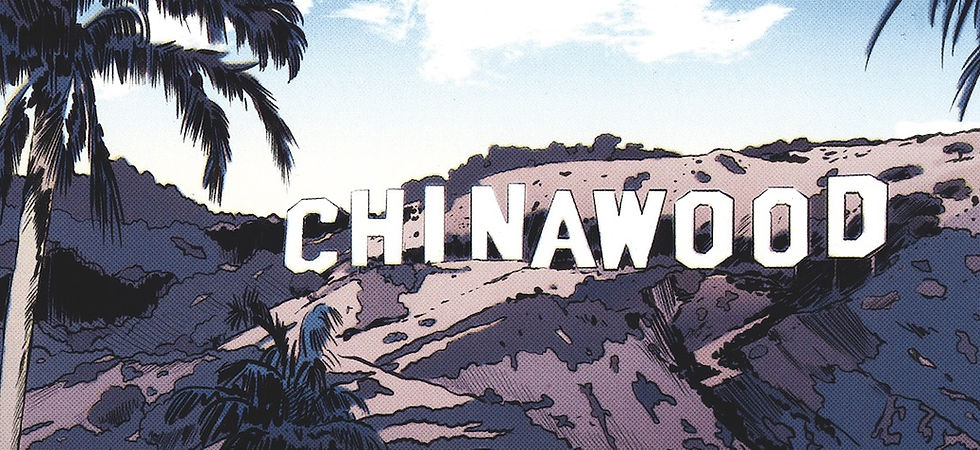Zero Day: A Mini Series Unveiling the Fragility of Modern Order
- Feb 24, 2025
- 3 min read

Zero Day is a bold and provocative mini series that cuts to the heart of contemporary societal and political contradictions. Far from being a conventional thriller, the series uses its narrative to expose the vulnerabilities at the core of modern institutions and the escalating tension between security and freedom. Its title—an allusion to the critical moment when a system’s unguarded flaws are exploited—serves as a metaphor for the turning point in our current global order, where the veneer of stability is increasingly undermined by internal decay and external pressures.
From the opening scenes, Zero Day captivates with its stark visual storytelling and deliberate pacing. The narrative unfolds as a multi-layered critique of modern governance, weaving together threads of political paranoia, technological uncertainty, and the erosion of civil liberties. Throughout its episodes, the series challenges the viewer to reconsider the price of security in an age dominated by fear and suspicion. The unfolding drama is not simply about impending threats; it is a meditation on how the mechanisms of power can morph into instruments of control, curtailing the very freedoms they claim to protect.
At the core of the series is a keen exploration of the tensions between state authority and individual autonomy. Zero Day presents a world where measures taken in the name of national security increasingly resemble acts of overreach, encroaching on personal freedoms and stifling dissent. The narrative portrays a chilling reality: as governments expand their surveillance apparatus and militaristic strategies, the space for genuine public debate and democratic engagement shrinks. This transformation is depicted not as an inevitable consequence of external threats, but as a deliberate recalibration of power—a shift that prioritizes control over dialogue, coercion over consensus.
The geopolitical dimensions of Zero Day are as compelling as its domestic commentary. In a global landscape marked by uncertainty and rapid technological change, traditional diplomatic channels appear to be in decline. The series scrutinizes the erosion of established norms of international engagement, suggesting that the drive for preemptive security has supplanted the nuanced art of diplomacy. In this context, the narrative is both a warning and a call to arms—a reminder that the erosion of diplomatic practice in favor of unilateral power only deepens global divisions. The mini series invites its audience to ponder the ramifications of a world where cultural exchange and mutual understanding are sacrificed at the altar of expediency and force.
Zero Day also delves into the paradox of progress in the digital age. As technological advancements create new avenues for connection and innovation, they simultaneously expose critical vulnerabilities. The series deftly captures this duality, portraying modern society as a network of interdependencies where every innovation carries an inherent risk. This juxtaposition is illustrated through tense, atmospheric sequences that blend high-stakes cyber intrigue with the more intimate human cost of living under constant surveillance. The result is a narrative that not only entertains but also raises profound questions about the nature of trust and control in an increasingly digitized world.
The mini series distinguishes itself through its commitment to exploring these themes with both intellectual rigor and visceral impact. Its narrative structure, characterized by interlocking storylines and carefully constructed plot twists, mirrors the complex web of modern geopolitics. By juxtaposing moments of personal vulnerability with the broader machinations of power, Zero Day creates a tapestry of human experience that is as emotionally engaging as it is politically resonant. Each episode serves as a chapter in a larger conversation about the future of democracy, urging viewers to scrutinize the trade-offs between safety and freedom in an era of constant threat.
In its final analysis, Zero Day emerges as a mirror reflecting the precarious state of our times. It is a work that challenges conventional narratives, urging us to question the assumptions underlying modern security paradigms and to recognize the hidden costs of living in a world where fear can easily be transformed into political capital. The series does not offer easy answers or simplistic solutions; rather, it compels its audience to engage in a critical dialogue about the direction in which our society is heading. As it unfolds, Zero Day stands as a testament to the enduring power of art to illuminate the dark corners of contemporary life, urging us to reclaim the space for meaningful debate in the shadow of authoritarian impulses.
Ultimately, Zero Day is more than a mini series—it is a clarion call for reflection. It reminds us that the search for security should not come at the expense of our democratic ideals, and that the true strength of a society lies in its willingness to confront uncomfortable truths. In challenging both political dogma and technological complacency, the series inspires a renewed commitment to safeguarding the values of freedom, dialogue, and human dignity.





Comments